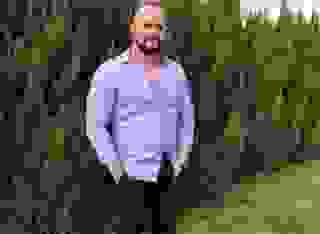Note: You can change font size, font face, and turn on dark mode by clicking the "A" icon tab in the Story Info Box.
You can temporarily switch back to a Classic Literotica® experience during our ongoing public Beta testing. Please consider leaving feedback on issues you experience or suggest improvements.
Click hereSo that they could speak in privacy, Ronan raised his hand and removed the personal time-field from everyone except those who stood behind him. Of the two-hundred and thirty-seven gods and goddesses present on Olympus that day, only sixteen of them wanted things to change, including those who Ronan met at the gate who had joined the group.
"There aren't many if you," he said.
"Some of us are on Earth," said Athena.
Ronan nodded. "Okay. I can dethrone Zeus, but the fallout from that could be enormous. So, I have a recommendation, and I don't know how you might feel about it, but I intend to build a home base, and all of you who wish to live in peace may join me. It may not have thrones, but it will have what matters most, peace, choice, respect for others, freedom like you've never experienced, and an opportunity to grow."
"That sounds wonderful," said Athena, "and I appreciate the invitation, but why should the others get to keep Olympus?"
"I can only ask," said Ronan, "why would you want it? There are so many bad memories here. Of those of you who have evolved, why not let go of the past, act in accord with who you have become in all its fullness, and start afresh? I can give you that chance."
"But this has always been my home," she said.
Poseidon laid his hand on her shoulder. "You have an understandable emotional attachment to Olympus, but you're not thinking clearly. Many here remain stuck in the past. You know they spoke the truth about a civil war. Is Olympus worth that?"
"You're willing to leave Olympus forever?" she asked him.
"Yes, and for three reasons. One, Ronan is good and happens to have more power than anyone else. That's a unique combination that doesn't often happen, and I want to surround myself with good people. Two, when it comes to those of us who have evolved versus those of us who haven't, by necessity, it will fall to us to make the magnanimous gesture and give Olympus to them. You know they haven't the capacity, and I can think of myriad things I would rather do than fight to keep this place, when... three, I want to continue evolving, and I've come as far as I can here."
"You've made some valid points," she conceded, "...especially the last one; I find myself in the same position. So, what's the plan?"
It seemed unlikely that Zeus would allow any of his subjects the freedom to reject him as their king, leave, and carve out a new life for themselves with Ronan. He would view it as usurping his dominance, and with it, his power. So, what would Ronan do with Zeus? Ronan had no problem seeing the king as one who perpetrated horrific crimes against his subjects and deserved what would come to him, but Zeus had so much support that dethroning him could cause more trouble than he's worth. He would have to give it a lot of thought, but a clear plan seemed unattainable at that moment.
It surprised Ronan that so many whom Zeus had tortured still supported him and saw his ability to torture his subjects as his divine right as king. They hadn't evolved enough to recognize how twisted that was.
The list of the ten people who wanted to leave because they had evolved—including those absent—consisted of Poseidon (the god of the oceans and seas), Athena (the virgin goddess of war, wisdom, and knowledge), the Titan Prometheus (the god of fire and knowledge, as well as the maker and champion of humanity), Dolos (the apprentice of Prometheus and originally the god of deception, trickery, and craftiness), Demeter (the goddess of the harvest, agriculture and the fertility of the earth), Chronos (the self-created primordial god of time), Ananke (the goddess of necessity and inevitability), Aletheia (the goddess of the naked truth), Apollo (adopted father of Chiron and the god of archery, poetry, dance, music, healing, and many other things), and finally, Hestia (the virgin goddess of home and hearth).
The reasons why ten others wanted to leave had more nuance, and Ronan took each of them aside to ask them about it.
Artemis, the virgin goddess of the hunt, said, "Zeus tortured my twin brother Apollo just for questioning him. That's all he had to do, and he always made us watch. In secret, Zeus had become my enemy since then, so when Apollo leaves, I will go with him."
At just five feet five, Eros, the hunky primordial god of carnal love and son of Chaos, looked like the unconsciously seductive, twenty-four-year-old blond swimmer who lived next door. He preoccupied the mind with an irresistible crush that included an overt willingness to be an object of his seduction. He told Ronan, "I'm indifferent to Zeus keeping the throne. Although, I always recognized the torture as horrific. I'm a god of love; it's beyond my nature to comprehend such barbarity. I want to leave because I find the atmosphere of Olympus repulsive, with its hatred, anger, and oppression. But not only that,"—he smiled looking Ronan up and down—"I find you incredibly attractive, not just because of your body, but because I sense an enormous wellspring of love inside you, and that makes me smile."
Ronan couldn't help but find Eros charming. "That's kind of you," he said. "I know that Aphrodite is your best friend, are you okay with her remaining here?"
Eros sighed. "I understand it," he said. "She will remain because Ares remains. Long ago, I had Ares once out of curiosity because Aphrodite kept going back to him and couldn't seem to stop herself"—he began whispering—"even when she was married to Hephaestus who—as I've discovered—is one of the most sexually generous, attentive, and loving gods I've ever known; not that Aphrodite would know, she never had sex with him. In contrast, Ares's passion for carnality is positively savage, and Aphrodite seems to enjoy that. For myself, I thought Ares was a bit overblown. She never knew what she gave up with Hephaestus. He and I have spent much time together."
Hebe, the wife of Heracles, also wanted to leave. She had begun having nightmares from witnessing so much torture, and Heracles wanted to leave to be with her and to get away from Hera. Their identical twin sons, Alexiares and Anicetus, wanted to leave as well, feeling they would have a far better life with Ronan and gave him their loyalty.
Dike, Eirene, and Eunomia just wanted some respect, and with Ronan, they knew they would receive it.
Hephaestus, the god of the forge, stood naked before Ronan using a cane to walk, and although he had the same height as Ronan, he had a body that one wouldn't expect. It certainly hadn't lived up to an Olympian standard of godhood. From the top, his head had gone almost bald, which is why he wore a cloth cap. His forehead looked too wide, his brow ridges jutted too far, his eyes looked too far apart, cheekbones too prominent, and his jaw too large. He had an unbalanced musculature and an odd shape to his torso. His lower half gave him an ungainly appearance, and his genitals looked to be the size of the average human, which looked out of place on a god. His legs looked thick with no definition, and of course, he had that wrong-turned left foot.
He had a unique situation that encouraged his desire to leave. He had conflicting stories of his parentage as well as conflicting reasons for someone casting him from Olympus. The truth was that, just as Zeus liked to take credit for impressive things in which he was not involved, he also tended to deny his involvement in things out of convenience. Despite whatever stories to the contrary, Zeus intentionally cursed the last child Hera carried for him. That was Hephaestus. When she gave birth, the cursed baby had the congenital defect of ugliness and a clubfoot. So, Zeus obtained the imperfect child he secretly sought, just so he could reject it, shame Hera, and vow to never lie with her again. He did this to give a further excuse for his many infidelities, which resulted in heightening Hera's vindictiveness against his paramours and their children. Out of anger for his deformity—in true Hera fashion—she blamed the baby and tossed him from Olympus where he eventually fell into the ocean. The oceanid Eurynome, and the nereid Thetis—the mother of Achilles—found Hephaestus, raised him on Lemnos, and they loved him dearly.
Eventually, Dionysus brought the adult Hephaestus back to Olympus, and he remained the only god ever allowed to return after his ejection (Zeus only allowed it to use him for his skills). At the time of his return, Zeus's daughter, the beautiful Aphrodite had many suitors. So, to stop them from fighting over her, Zeus forced her to marry Hephaestus simply because Zeus knew she would never lie with him. As a result, she had affairs with many others during their marriage, and since they hadn't a good union, it forced Hephaestus to find affection elsewhere.
Hephaestus had one story told of him that besmirched his good name, and that's the one involving the alleged attempted rape of Athena, but that story never actually happened. It supposedly caused Hephaestus's semen to strike the ground, resulting in a birth from the soil an early king of Athens named Erichthonius. The king invented the story from whole cloth for the sole purpose of fabricating himself some divine origins at the expense of Hephaestus's reputation. In truth, Hephaestus, along with a tiny minority of gods, had never harmed anyone of his own volition. Like many others, he only did what Zeus made him do.
"Eros likes you a lot," said Ronan.
"Eros and I have been spending a lot of time together if you know what I mean."
"So, you're no longer with Aglaea?" Ronan asked.
He shook his head. "Like Aphrodite, she cheated on me with Ares." He shrugged a little. "I can't say that I blame her, Ares is so handsome, and look at me. Eros has been the only one who sees beyond this."
Ronan glanced down at Hephaestus's foot. "Has no one tried to help you?"
"Zeus cursed me before my birth," he said. "He's too powerful; every attempt to lift it has failed."
"And of course, Zeus is too much of a jerk to undo it himself. Would you like me to do it?"
Hephaestus dropped his mouth open. "If you would try, I would be grateful."
"I won't just try; I will remove and reverse it. What Zeus did to you was cruel. But first, I need to find what you would look like without the curse. Hold onto me so you don't fall." Hephaestus held Ronan's shoulders to steady himself.
When Ronan laid his hands on Hephaestus's chest, he closed his eyes and concentrated to see in his mind beyond what Zeus had done to him. In the distance, an image came racing toward him, and there he was. Tucked away in another universe, over the farthest reaches of time and space, Ronan could see him...Hephaestus, whole and glorious—the blue-collar god, the proud symbol of skills and innovations born of the sweat and struggle of hard labor. Beneath a covered workspace, he stood mostly naked before his anvil near the flaming forge whose light cast shadows behind him. He pounded away at a chunk of red-hot metal, while sweat ran down his sooty, lean, well-balanced physique rippled with an astonishing quantity of fur-coated sinews. He lifted the tongs to inspect the piece, and in its glow, Ronan saw his face. He had short hair and beard, dark like the coals of his forge, and a face that anyone lucky enough to have his love would have eyes for no one else and would never conceive of sharing anyone else's bed. They would look forward to every tender moment beneath him, his kiss, and his loving embrace. The level of Zeus's disservice to Hephaestus was palpable, and it upset Ronan.
He opened his eyes and gazed upon Hephaestus in amazement.
"Did you see me?" he asked.
"You're beyond belief." Ronan hugged Hephaestus and held onto him tightly. "Brace yourself, removing and reversing Zeus's curse is likely to hurt."
At that point, they had the attention of all those nearby who moved closer.
Ronan built up a surge of purifying energy and began bombarding Hephaestus with it. With the light emanating from the blacksmith, the moment Ronan removed the curse, a flash of darkness burst from his body causing him to collapse, but Ronan held him aloft, as Henri had when Ronan accepted the eternal flame.
The others shielded their eyes, the light outshining everything, like standing near the sun. When it dimmed, Ronan settled Hephaestus upon his feet. For the first time, they would hold him without assistance or discomfort.
Ronan jostled him. "Wake up, buddy. It's done."
He opened his eyes and stood on his own. "Everyone, I would like you to meet Hephaestus without Zeus's curse. When Ronan backed away, everyone had a chance to see him whole for the first time, and they had more than just shock upon their faces at how delectably handsome he was. They also recognized it as just one more horrible thing that Zeus had done. In many ways, he had tortured Hephaestus for his entire life.
"Is anyone else cursed?" asked Ronan.
"I know someone," said Alcides (formerly Heracles).
"Who?"
"Priapus," said Hestia. "Before he was born, Hera cursed him with ugliness, foul-mindedness, and impotence because Paris (a prince of Troy) said that Priapus's mother, Aphrodite, was more beautiful than she."
"I see...more petty vindictiveness. Well, where is he?"
"Because of the curse," she said, "which we could not remove, he was so foul minded that he had nothing but lustful thoughts, and in his youth, he tried to...well, let's just say that nothing happened because I woke up before he even touched me. However, because he was a threat, we cast him from Olympus. He lives on Earth now with Pan. I know the incident only happened because of Hera. It would be in everyone's best interest if the curse were lifted."
"Are you saying he tried to rape you?" asked Ronan.
Alcides spoke up. "Hera cursed me with a madness that caused me to kill my first wife and my children, so I personally know what she can do. Please, help him."
Ronan palmed his face. "Ugh...what a mess. Okay, I'll do that, and if there are any others, bring them to me as well, but let us settle elsewhere first. Before we do that, where is Zeus?"
"We just were discussing that," said Poseidon.
"He used lightning to ignite the fire beneath the bull," said Athena, "and teleported immediately afterward."
"Where would he have gone?" asked Ronan.
"Maybe, he just left because he fears to face you," she said.
"Maybe. For now, I can think of nothing else that we can do with time stopped unless any of you would like the time to pack before we leave."
They indicated they had nothing they couldn't reacquire.
Poseidon thumbed over his shoulder to the crowd left frozen in time. "What will you do with them?"
"For the moment, I'll leave them that way when I restart time. I don't want them plotting civil wars against anyone, after all, I prefer to leave them in peace. Have you all someplace you can go where Zeus can't find you?"
"We have a house hidden from him on Earth," said Athena. "We can go there."
"Good. Hephaestus, would you accompany me, please? I will soon need your input into our new location."
"I am here for anything you need of me, Ronan. You have my loyalty."
"I appreciate that, and I want you all to know that you have my loyalty, and even those who I must leave frozen for now have my loyalty. I would never do anything to harm any of you, that's just not who I am. I only destroyed Kratos because he was a threat to the people I care about, and I had no other options at the time. I have many options now, and the age of hurting others, just because someone can, has ended with me. Through the choices that you've made here, I will trust that you've learned that there is another way to live, and I will hold each of you to that. As for those frozen here, I won't hurt them, but at the same time, I cannot allow them to hurt others, especially any of you and those on Earth. I will have to think of some way to give them the freedom to live—and an opportunity to evolve—while not allowing them to play havoc with everyone else by acting on their nature. If any of you have ideas on how I might go about that, I welcome some suggestions. I ask that you give it some thought. You may think of something I cannot. Okay, here we go."
Ronan lifted his right hand to make an exception of those he intended to keep frozen and snapped the fingers of his left hand. In an instant, everything changed. The light from the sun shone all around them and felt as though they stepped from a darkened room into the daylight, but as little islands of stopped time, the light would not reflect from the frozen gods standing nearby. They each appeared as a person-shaped black hole with all frequencies of light vanishing upon them.
"Centaurian!"
The voice came from the golden doorway of the temple behind them. Ronan turned to find Zeus standing as one might find the Colossus of Rhodes, hands on his hips and legs astride the entryway of its harbor. The moment he saw him, he raised his hand and froze Zeus in time just like the others.
"That was easy," said Poseidon.
"Too easy," said Ronan. "For now, at least, we know where he is. No one can unlock any of them but Chronos and me."
"I have seen his look of satisfaction before," said Athena. "He's done something."
"Like what?"
She turned her gaze upon Ronan and stared him in the face. "Something that has made him comfortable enough to confront you."
"If he left the moment he lit the fire with the lightning, no more than three minutes passed before I stopped time here."
"For him, that's more than enough."
"Right. Thank you, Athena." Inside his head, he heard his name called. "Emma needs me. I must go to her. Let's go, Hephaestus." He took him by the hand.
"Wait, we can't teleport from here," he told Ronan.
"Why not? Zeus did."
"It's part of the security for Olympus," said Dike, the goddess of Justice, "only Zeus can teleport within Olympus without first passing through the gate."
"Well, that's inconvenient," he said.
"You must break The Great Seal if you wish to leave any other way," she said.
"Without knowing what form that it takes," he said, "I wouldn't know how to do that."
"We'll take the shortcut to the gate," said Hephaestus.
-------
At the time of his birth, Elias Adrianus had the name Aquila (meaning Eagle), a symbol of Zeus foisted upon the subconscious of the mother in an act of the sky god taking credit for her child's existence. As with all mortal beings, in time, Aquila's mother died, his wife died in childbirth as did the baby, and every relationship he fostered seemed doom to failure as those around him who hadn't died of disease, aged while he remained unnaturally and inexplicably young. When the how of it came into question by enough people—with no acceptable explanation—the necessity of faking his own death arose (the first of many such occasions).
Over his lifetime, he had cast aside his birth name along with a string of assumed aliases, and those new identities came with the hope that things would improve, but they never could. So, with every arduous beginning—and there were many—after the death of his third wife, and every child he attempted to raise, the hope he occasionally felt, faded into the reoccurring misery of having to face the onerous chore of another name, another location, another attempt to fit in. The curse of his unwanted immortality forced him to endure these pernicious disruptions with a growing despondency in their wake.
Throughout his life, Elias had believed himself attracted to women, but later, as his lust for living had waned, so had his lust for the female sex. He, of course, had replaced it with a lust for money and power attempting to find, if not meaning, then something to occupy his seeming endlessness, but his attempt to fulfill his avaricious desires had also grown tiresome. After nine-hundred and seventy years, he thought he had done it all—all he deemed worthy of him, anyway—but then came his transcendental sexual encounter with Felix Raposo. Afterward, he felt an aching need to recreate that sense of joy and fulfillment that he had gone without for more centuries than he cared to count. Suddenly, he had sexual fantasies of every man he found even remotely attractive. Doubtless, they wouldn't measure up; Felix had set the bar so high. Anyone would have difficulty measuring up to Eros's specially blessed and beloved Lucky Fox, but to have someone with whom he could share his bed sounded better than having no one at all.








